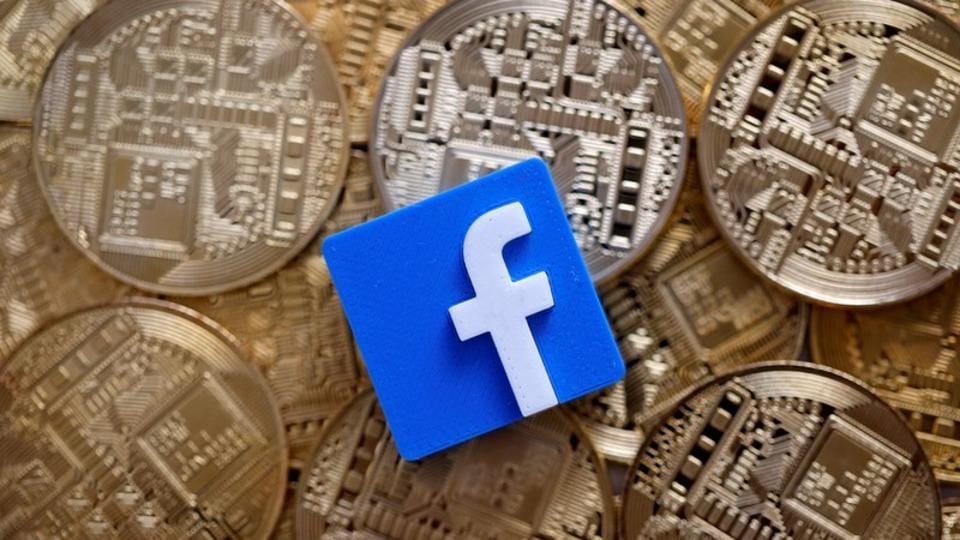Facebook executive defends Libra cryptocurrency plan to US senators
Facebook’s digital currency plans have been receiving criticism from US authorities.

Under withering criticism from senators, a Facebook executive on Tuesday defended the social network giant's ambitious plan to create a digital currency and pledged to work with regulators to achieve a system that protects the privacy of users' data.
"We know we need to take the time to get this right," David Marcus, the Facebook executive leading the project, told the Senate Banking Committee at a hearing examining the plan. Anger over Facebook's series of scandals, notably the opening of personal data of millions of users to Donald Trump's 2016 campaign, boiled over as senators of both parties demanded to know why the company wielding massive market power should be trusted in this far-reaching project.
The litany of criticism came as Congress began two days of hearings on the currency planned by Facebook, to be called Libra. Also Tuesday, a House Judiciary subcommittee was extending its bipartisan investigation of the market power of Facebook, Google, Amazon and Apple.
"Facebook is dangerous," asserted Sen. Sherrod Brown of Ohio, the committee's senior Democrat. Like a toddler playing with matches, "Facebook has burned down the house over and over," he told Marcus. "Do you really think people should trust you with their bank accounts and their money?"
Republican Sen. Martha McSally of Arizona said "the core issue here is trust." Users won't be able to opt out of providing their personal data when joining the new digital wallet for Libra, McSally noted. "Arizonans will be more likely to be scammed using Libra," she said.
On the defensive from bursts of aggressive questioning, Marcus indicated the currency plan is a work in progress. "We will take the time" to ensure the network won't be open to use by criminals and illicit activity like money laundering and financial fraud. "We hope that we'll avoid conflicts of interest. We have a lot of work to do," Marcus testified.
The grilling followed a series of negative comments and warnings about the Libra plan in recent days from President Donald Trump, his treasury secretary and the head of the Federal Reserve.
Some senators emphasized the potential positive benefits of Facebook's plan, meant to bring money transacting at low cost to millions around the globe who don't have bank accounts. Facebook had its strong defenders of the project, too, on the panel.
"To strangle this baby in the crib is wildly premature," said Sen. Pat Toomey, R-Pa.
In that vein, Marcus said Libra "is about developing a safe, secure and low-cost way for people to move money efficiently around the world. We believe that Libra can make real progress toward building a more inclusive financial infrastructure."
The planned digital currency is to be a blend of multiple currencies, so that its value will fluctuate in any given local currency. Because Libra will be backed by a reserve, and because the group of companies managing it will encourage a competitive system of exchanges, the project leaders say, "anyone with Libra has a high degree of assurance they can sell it for local (sovereign) currency based on an exchange rate."
Promising low fees, the new currency system could open online commerce to millions of people around the world who lack access to bank accounts and make it cheaper to send money across borders. But it also raises concerns over the privacy of users' data and the potential for criminals to use it for money laundering and fraud.
To address privacy concerns, Facebook created a nonprofit oversight association, with dozens of partners including PayPal, Uber, Spotify, Visa and MasterCard, to govern Libra. As one among many in the association, Facebook says it won't have any special rights or privileges. It also created a "digital wallet" subsidiary, Calibra, to work on the technology, separately from its main social media business. While Facebook owns and controls Calibra, it won't see financial data from it, the company says.
Senators demanded to know exactly how that separation will be done.
"Facebook isn't a company; it's a country," said Sen. John Kennedy, R-La. Kennedy and other conservative senators took the occasion to air long-standing grievances against Facebook, Twitter and Google for a perceived bias against conservative views.
Federal privacy regulators are close to levying a $5 billion fine on Facebook for not meeting terms of an earlier agreement; it would be the largest by far for any tech company.
Trump tweeted last week that the new currency, Libra, "will have little standing or dependability." Both Treasury Secretary Steven Mnuchin and Fed Chair Jerome Powell have expressed serious concerns recently that Libra could be used for illicit activity.
The Treasury Department has "very serious concerns that Libra could be misused by money launderers and terrorist financers," Mnuchin told reporters at the White House on Monday. "This is indeed a national security issue."
Facebook has "a lot of work to do before we get to the point where we're comfortable with it," Mnuchin said.
Rep. Maxine Waters, D-Calif., head of the House Financial Services Committee, has asked Facebook to suspend the plan until lawmakers and regulators have a chance to review it. She has said that Facebook, with some 2 billion users around the world, "is continuing its unchecked expansion and extending its reach into the lives of its users." She called Libra "a new Swiss-based financial system" that potentially is too big to fail and could require a taxpayer bailout.
Mnuchin's comments came a few days after Trump tweeted: "I am not a fan of Bitcoin and other Cryptocurrencies, which are not money, and whose value is highly volatile and based on thin air. Unregulated Crypto Assets can facilitate unlawful behavior, including drug trade and other illegal activity."
If they want to get into the financial business, Facebook and its dozens of partner companies in the venture will have to accept the kind of tight regulation that banks are under, Trump said.
Powell, a powerful financial regulator who is independent of the Trump administration, told Congress last week that Facebook's plan "raises a lot of serious concerns, and those would include around privacy, money laundering, consumer protection, financial stability. Those are going to need to be thoroughly and publicly assessed and evaluated before this proceeds."
Catch all the Latest Tech News, Mobile News, Laptop News, Gaming news, Wearables News , How To News, also keep up with us on Whatsapp channel,Twitter, Facebook, Google News, and Instagram. For our latest videos, subscribe to our YouTube channel.


























